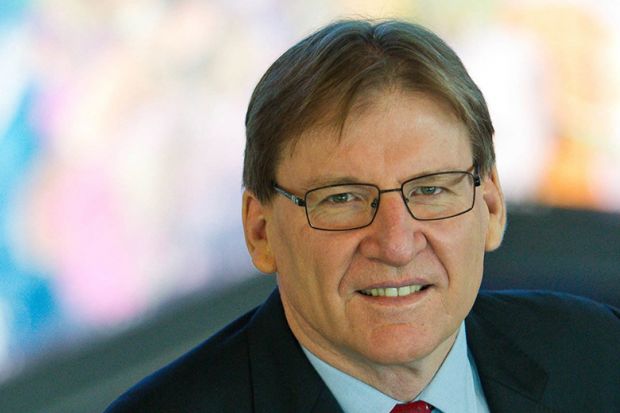Australia is seeking a new higher education regulator, with veteran administrator Peter Coaldrake relinquishing his role as chief commissioner of the Tertiary Education Skills and Quality Agency (Teqsa).
Education minister Jason Clare said Professor Coaldrake would step down on 10 May, with a replacement to be appointed in due course. “The government thanks Professor Coaldrake for his significant contribution to Australia’s higher education sector and wishes him well for the future,” Mr Clare said.
Professor Coaldrake told Times Higher Education that he had “informally signalled” his intention to leave the role months ago, but had held off amid leadership uncertainties in the agency – uncertainties now resolved with the appointment of acting head Mary Russell as substantive chief executive.
He said regulators should not be “life appointments”, and Teqsa should have a new chief to help guide higher education regulation as part of the Universities Accord implementation agenda. “Organisationally, it was a good time to go,” he said. “It wouldn’t have been a good time to go a few months ago.”
Professor Coaldrake, who served as vice-chancellor of Queensland University of Technology for 15 years, subsequently headed a review of provider category standards that led to changes in the classifications of universities and colleges.
His review rejected proposals to allow universities to be teaching-only institutions, instead finding that they should be subjected to tougher research quality benchmarks – advice that the government accepted. That approach has since been called into question by the Universities Accord’s final report, which also recommended that Teqsa be subsumed by a new Australian Tertiary Education Commission.
Professor Coaldrake said he did not expect changes to the reforms that had flowed from his review, including the redefinition of what was then a defunct “university college” category.
“In my view, research has got to be a defining feature of a university [but] much of the growth ahead won’t be in the universities. We want to have a system which has excellence at all levels – not just in the universities.
“For top providers who had oftentimes no interest whatsoever…in being a university, the university college category was a way to give them recognition of their special status. I feel pretty wedded to those criteria [and] I don’t think…the accord process will change [them].”
Critics say university college classification brings status but not money, with teaching grants mostly out of reach and students slugged with a substantial fee on loans to pay their tuition costs. Professor Coaldrake would not be drawn on funding issues, but said university colleges had an important role.
“People want to be universities, but it’s quite expensive to be a university. It won’t just be getting into the university category; it’ll be maintaining your position in it.
“The day might come when a brave vice-chancellor of a university decides perhaps they should be a university college. It will be a strategic question down the track for institutions as they think about their capacity to invest in research.”
He said he had no firm plans after leaving Teqsa, but acknowledged that this could change. “When I left being a vice-chancellor I swore I’d never do anything else in higher education.”
Register to continue
Why register?
- Registration is free and only takes a moment
- Once registered, you can read 3 articles a month
- Sign up for our newsletter
Subscribe
Or subscribe for unlimited access to:
- Unlimited access to news, views, insights & reviews
- Digital editions
- Digital access to THE’s university and college rankings analysis
Already registered or a current subscriber? Login










